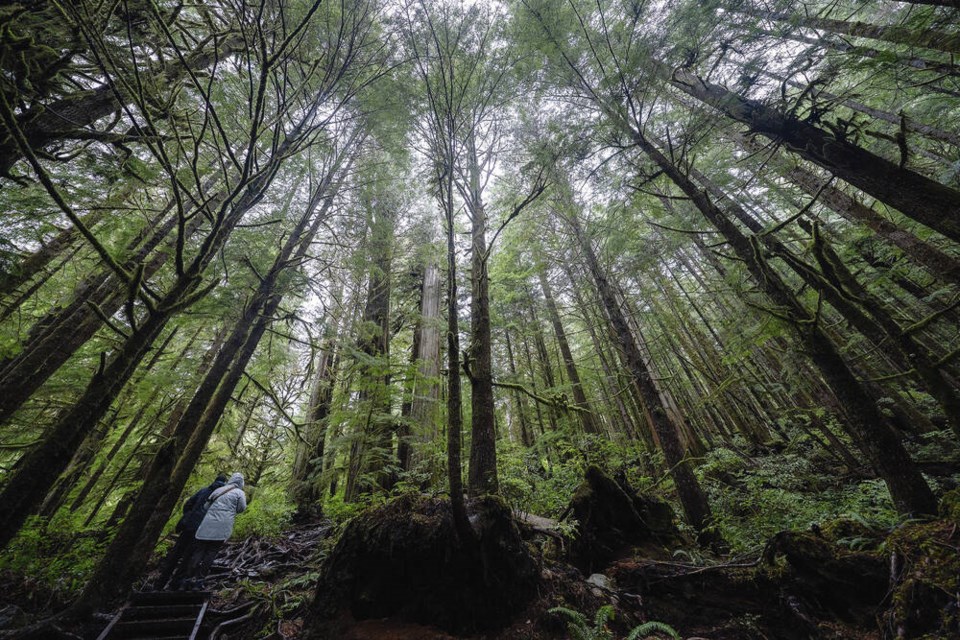Whether it’s the cost of living or the climate emergency that’s stressing you out, there’s a nature-based therapy for that.
During the pandemic, health officials urged people to get out into parks and woodland areas as a way of coping with anxiety, sometimes referring to the practice of forest bathing.
Although it has become trendy, the term is traced to the 1980s in Japan and a therapeutic exercise called shinrin-yoku, which aims to heighten the senses through connecting with nature.
Now researchers at the University of B.C.’s Faculty of Forestry are studying the science behind the health benefits of taking a break in the forest.
Dr. Guangyu Wang, a professor at UBC Forestry’s department of forest resources management, says during the pandemic they surveyed hundreds of students before and after taking them for forest therapy.
He said the therapy included taking a walk through Pacific Spirit Park at UBC, meditation, sometimes having a tea ceremony in the park to enjoy tea with other people and connect with nature.
They also brought mats and performed yoga on occasion, and conducted experiments with meditation and, for example, students were encouraged to note the sounds and smells around them in the park, and how that made them feel.
Wang is also the director of the Multidisciplinary Institute of Natural Therapy at UBC and conducts lab experiments that replicate forest environments to include sounds and scents, and the use of VR headsets to help students escape the stressors of university.
“We had students who can’t fall asleep and they said ‘Wow, I fell asleep in five minutes,’” he said Saturday.
During the pandemic experiments in Pacific Spirit Park they discovered that a two-hour forest therapy session can lower blood pressure and stress.
Along with the surveys, they took blood pressure readings and there were notable improvements in the students, some of whom went from having slightly elevated blood pressure to normal blood pressure after the therapy, he said.
“A lot of people in Vancouver are lonely or feeling lots of pressure, but when they are together and they connect with nature this can reduce anxiety, and give meaning to life,” said Wang.
They feel happier and can also improve the quality of sleep, he said.
Wang said some people described being able to think more clearly after the therapy and that they felt more positive about whatever was stressing them.
He noted participants who are parents said after the forest bathing that they were motivated to take their kids into nature because they had a greater understanding of how important it is for mental health.
Forest bathing differs from taking a stroll through the woods because it is more structured and involves a deliberate and mindful connection with nature. Wang said the goal is to integrate forest therapy into the public health system.
The Canadian Medical Association has endorsed a plan by the B.C. Parks Foundation to prescribe nature. It’s called PaRx, a national nature prescription program in which health care professionals work with patients to come up with personalized nature plans to improve health.



